Indigenous Advisory Committee: Membership
Members
The Indigenous Advisory Committee provides the Government of Canada expert advice and participates in the development of policy and guidance for the impact assessment system.
The Committee's membership includes First Nations, Inuit, and Métis members. Representation from all three distinct Indigenous peoples helps ensure that the Committee provides a broad and inclusive perspective reflective of the unique rights, interests, priorities and circumstances of the Indigenous peoples in Canada.
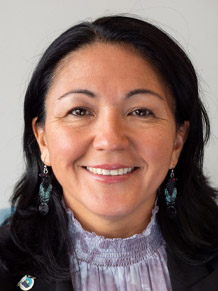
Melody Lepine (Co-Chair)
Mrs. Lepine (she/her) is a member of the Mikisew Cree First Nation and resides in Nistawâyâw (Cree) Ełídlį Kuę́ (Dene), Fort McMurray, AB. Treaty 8 Territory.
Melody has over 20 years of experience directing First Nation consultation, impact assessments, negotiations and implementation of impact and benefit agreements, developing Indigenous protected and conserved areas and First Nations guardians’ programs, and engagement with proponents and regulators on all matters pertaining to regulatory applications, permitting and compliance. Melody studied environmental conservation sciences at the University of Alberta and the environmental master’s program at Royal Roads University. She is a member of the Indigenous Advisory Committee for the Impact Assessment Agency of Canada, council member for the National Guardians Network and board member for the Nipiy Tu Research and Knowledge Centre.
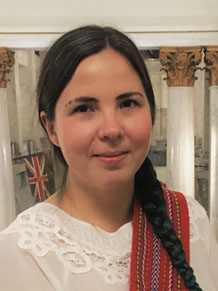
Jocelyn Gosselin (Co-Chair)
Jocelyn Gosselin is Métis person with ancestral ties to the Red River. Since finishing post-secondary school, Jocelyn has called the Alberta Oil Sands Region her home until recently returning to her roots in Northwestern Ontario. She has extensive knowledge and experience in the Canada-Alberta Oil Sands Monitoring Program, and Impact Assessment Consultation. She serves her Nation by offering her consultative services to support the communities’ initiatives, and is active on various multi-stakeholder committees as Métis representative appointed by her Nation. She holds a B.Sc. in Environmental Management from Royal Roads University, and a Diploma in Environmental Field and Laboratory from Niagara College. Jocelyn embraces the balance between traditional knowledge and modern science, and provides policy and technical advice to Indigenous and western governments. Jocelyn practices traditional harvesting which strengthens her connection to community and the land.
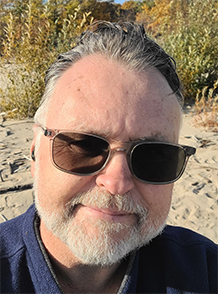
Walter Andreeff
Walter Andreeff lives in Métis Nation of Alberta (MNA) Region 5 Slave Lake. He has knowledge and experience in Indigenous-led land use assessments, familiarity with Métis Nation governance, and direct knowledge of best practices for Indigenous participation, collaboration, and partnership in environmental/impact assessments. Walter has a science degree in Environmental Geology and has worked with Alberta and British Columbia Indigenous communities over the past 20 years. He is a recognized member of the MNA community.
Walter is a Métis Consultation Coordinator with MNA Region 5 Slave Lake. He is an active member of the National Boreal Caribou Knowledge Consortium's Indigenous Knowledge Circle, Monitoring Working Group, and Habitat Restoration Working Group and currently provides support as a member of the Indigenous Circle of Experts who are drafting a paper on the development of the Indigenous Cooperation Agreement Regulations. In the past, Walter worked in the oil and gas industry for many years in several roles liaising with communities. He possesses expertise in Indigenous Métis rights, understands its intersection with major projects and its relationship to the operation of the Impact Assessment Agency of Canada and Environment and Climate Change Canada.
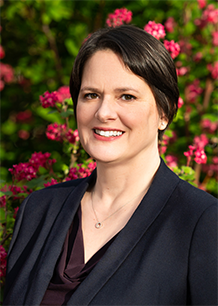
Jennifer Campbell
Jennifer Campbell is a Métis person as well as the founder and CEO of the social and environmental consultancy, Two Worlds Consulting. She has two decades of impact assessment experience working with Indigenous Nations, the private sector, and government.
Jennifer has worked on projects across a wide variety of sectors and geographies. She believes in using more than one lens in impact assessment by working in Western and Indigenous knowledge systems and ways of knowing. Jennifer is both an experienced Project Management Professional and Environmental Professional, with a Master of Public Administration and a BSc in Geography and Environmental Studies. Her strong commitment to serving her local community includes work on Indigenous youth homelessness.
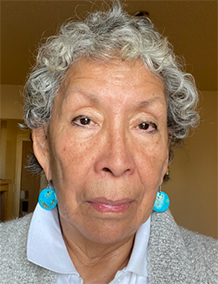
Florence Catholique
I have worked as a chambermaid, dishwasher, office clerk, employment officer, Denesoline Yati Worker, Teacher, Principal, Wildlife, Lands and Environment Committee (WLEC) Manager, Translator, Researcher, Contractor, Chief and Councillor. My family still live at home, lutselk'e, Northwest Territories (NWT). I am a Dene rights advocate and strongly believe and practise my "Ch'ani" (our way of life). I have worked with or have been involved in:
- Indian Brotherhood of NWT now called the Dene Nation
- Native Women's Association of Canada
- NWT Native Women
- NWT Treaty 8 Corporation
- Diavik Environmental Monitoring Board
- BHP Independent Environmental Monitoring Advisory Board
- Diavik & DeBeers (Snap Lake) Socio-Economic & Environmental Agreements
- BHP, Diavik & DeBeers (Snap Lake) Impact Benefits Agreements
- Lutselk'e Dene 1st Nation Chief and Councillor
- Northern Contaminates Program
- Akaitcho Screening Board
- Akaitcho Aquatics & Oceans Monitoring Board
- Mackenzie Valley Land & Water Board
- Mine Watch Canada
- Mine Training Society
- Plus many other committees
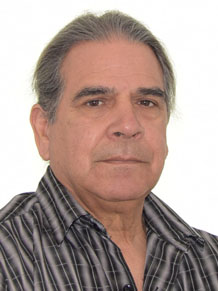
Paul Jones
Paul Jones is Anishnabek from the Saugeen Ojibway Nation Territory; his reservation is Neyaashiinigmiing, and he is of the Ngig (Otter) Clan. Paul was a Band Councillor for the Chippewas of Nawash from 1991 to 2017. As such, Paul acted as senior Council Liaison, playing a key role in engagement and negotiations with Provincial and Federal Governments in the areas of Indigenous Treaty Rights, environmental issues, as well as resource, energy and infrastructure development. He has over 30 years experience working with professionals, academics (from biologists, philosophers to nuclear Physicists) and Knowledge Keepers. Paul has served on a variety of national committees addressing Indigenous and Treaty Rights, in particular Indigenous-Science knowledge systems engagement. Paul has been a commercial fisherman for decades, balancing rights advocacy work with the sustainable exercise of his Indigenous rights.
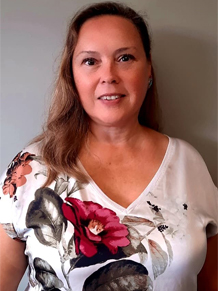
Julia Kennedy-Francis
Julia Kennedy-Francis is an Indigenous woman of Wolastoq and Mi'gmaq decent who currently holds the position of Lands Management & Policy Development Director for her home community of Sitanisk. In addition to her current role, she has over twenty-five years of experience in Indigenous land and fisheries resource management; establishing productive Indigenous & Crown relations; facilitating and managing Indigenous consultation and accommodation processes for both proponents and the Crown; and advising on and project managing environmental assessments. In her fisheries roles, the focus has mainly been centered on developing the internal community engagement and consultation processes with various Indigenous communities and organizations to obtain input on the potential impacts of the proposed Crown and/or proponent's projects. Other activities included discussions and negotiations to fund and conduct Indigenous Knowledge studies to guide and support the consultation and accommodation discussions with the Crown and/or proponents. From her most recent role in fisheries, she managed the negotiations with Fisheries and Oceans Canada (DFO) and the Province of New Brunswick to fund a province wide watershed based Indigenous Knowledge study. Through her roles in both fisheries and land management, Julia has advised on, and project managed, several environmental assessments and in recent years impact assessments for various projects. Through these activities, Julia has always advocated for the equal recognition of Indigenous Knowledge studies to be incorporated into DFO and the Impact Assessment Act's internal assessment processes.
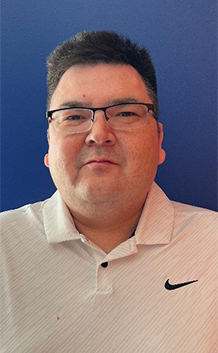
André Michel
André Michel was born and grew up in the Uashat mak Mani-utenam community. He is Innu and speaks his mother tongue, Innu-aimun, fluently. Trained as a biologist (B.Sc.), he has been interested in all sciences since his childhood. He is also very proud of his Indigenous roots. His paternal grandfather, Alexandre Michel, is one of the last Innu to have a famous "canoe hump" on his back, a testament to the nomadic past of his people. His maternal grandfather, Jean-Baptiste Jean-Pierre, was a great Innu sacred drum (Teueikan) player. He remembers that his grandparents always encouraged him to pursue his education.
After university, André Michel worked for a number of environmental firms. In 2004, he returned to his community as an environmental advisor. He was soon mandated to handle the Moisie River file and to participate actively in development of the river, known in Innu-aimun as Mishta-Shipu (the Grand River). Mr. Michel also worked for the Innu Nation of Quebec as an expert biologist on various environmental issues and notably on the caribou file, of which he has thorough knowledge. He also advises the Innu chiefs on Atlantic salmon.
Always there to defend traditional Innu activities, culture and heritage, he uses his scientific knowledge to preserve and perpetuate the traditions. "Fight fire with fire" is one of his favourite sayings. He is also raising his Innu colleagues' awareness of the importance of conserving and preserving various animal and plant species when necessary.
He now serves as Director, Environment and Territory, for Innu Takuaikan Uashat mak Mani-Utenam (ITUM) and the Innu of Uashat mak Mani-utenam. He remains committed to helping his community move forward on environmental matters and is as passionate as ever about his work and about science in general.
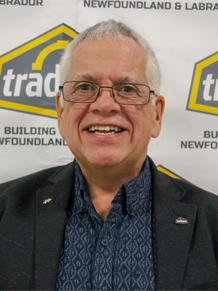
Stanley Oliver
Stanley Oliver was born and raised in Labrador, Stan is an Inuit who is an avid hunter, fisher, and outdoorsman. He currently holds the position of Manager with Trades NL: Indigenous Skills Trades Office. He has worked in the Labrador and Atlantic region in the Natural Resources field/industry for over thirty-five (37) years. Occupying, several senior management and leadership positions with the Nunatsiavut Government, the Nunatukavut Community Council, and the Atlantic First Nations Policy Congress. He holds a Diploma from Memorial University as Resource Technician, a Certified Engineering Technician with the NL Association of Engineers and holds numerous certificates in Indigenous Governance and Administration.
Stan’s wide range of education, work experience and local knowledge makes him adaptable to complex working environments. His in-depth knowledge of Newfoundland & Labrador Indigenous rights is often requested on the local, provincial, and national level. He currently sits on the Indigenous Advisory Committee for the Impact Assessment Agency of Canada and was a member of the Circle of Experts on Indigenous Rights for IAAC, the NL Provincial Wilderness Ecological Advisory Council, Canada Parks & Wilderness Society NL Chapter, Forecast NL with Memorial University and the HV-GB Health Community Advisory Committee.
He will tell you his philosophy “is to create free-detailed oriented work environments, that focuses on positive collaborative partnerships with government and business with out loosing sight of grass roots concerns.”
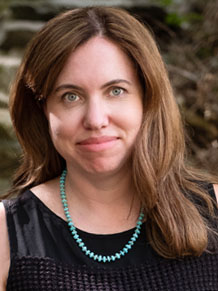
Rachel Olson
Rachel Olson is a citizen of the Tr’ondek Hwech’in First Nation from the Yukon Territory. Rachel has a PhD in Social Anthropology and is president and a founding director of The Firelight Group, where she is also technical lead on the Traditional Knowledge and Use Study (TUS) team, working with Indigenous communities on environmental assessment processes. Her focus is on Indigenous knowledge systems (IK) and traditional land use, examining best practices for incorporating these elements in research and environmental assessment processes with industrial projects such as pipelines, wind farms, and mining. For more than 20 years, Rachel has worked with Indigenous communities across Canada on issues related to IK, health, and resource development. She has authored IK/TUS reports for First Nation communities in British Columbia, Alberta, Ontario, the Yukon, Northwest Territories, and Nunavut. She has also testified at Environmental Review Board hearings on IK methods, analysis, and assessment.
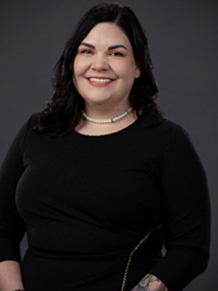
Angel Ransom
Angel Ransom is a proud member of the Kwun Ba Whut'en (Caribou) Clan of the Nak'azdli Whut'en First Nation. Growing up in her home community of Fort Saint James, BC, Angel developed an appreciation for the importance of community and a passion for the outdoors – not just as a place for play but also for its sustainable use and management. With a bachelor's degree in environmental planning and her own consulting company, Angel has spent more than a decade creating change in the field of Indigenous land use planning at the local, provincial, and national levels.
As an Indigenous female expert in First Nations planning, Angel is committed to advancing and advocating for Indigenous-led and designed projects and processes that centre on Indigenous rights, culture, and community well-being. Additionally, she strives to inspire Indigenous youth to see their potential to affect and create change in the world around them. Angel's personal and professional pursuit for excellence is driven by her core values of respect, responsibility, trust, and communication as well as her dedication to collaboration and community building through her work and volunteer activities.
When she's not travelling for work and volunteer commitments, Angel enjoys using her vacation time to relax and experience new lands, people, and cultures. But most importantly, whether it's the end of the workday, a work trip, or a vacation, she's always happy to return home to her spoiled fur babies.
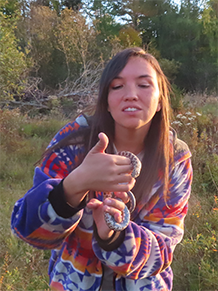
Chevaun Toulouse
Aanii, Chevaun Toulouse nindizhinikaaz, Sagamok Anishinawbek First Nation nindonjibaa, Ginoozhe nindoodem.
My name is Chevaun Toulouse, I am from Sagamok Anishinabek First Nation, and I am pike clan. Sagamok Anishinabek First Nation is located on the North Shore of Lake Huron, across from Manitoulin Island, the largest freshwater island in the world.
I graduated from the Sault College Fish and Wildlife conservation technician program. I received the Ontario master Naturalist program certification from Ontario Nature and Lakehead University. I am currently completing my Biology and Indigenous environmental science undergraduate with Trent University.
I have worked in the environmental conservation field for many years as a species at risk technician for the Toronto Zoo, Magnetawan First Nation, Sagamok First Nation, Ministry of Natural Resources and Forestry (MNRF) and the Ontario Forest Science Center.
Recently I was a researcher for the documentary Great Lakes Untamed, which enabled me to learn a new facet of environmental conservation that highlights our great lakes, and the challenges they face through film.
Conservation outreach with First Nations and working for the environment have been the most rewarding experiences I have ever known.